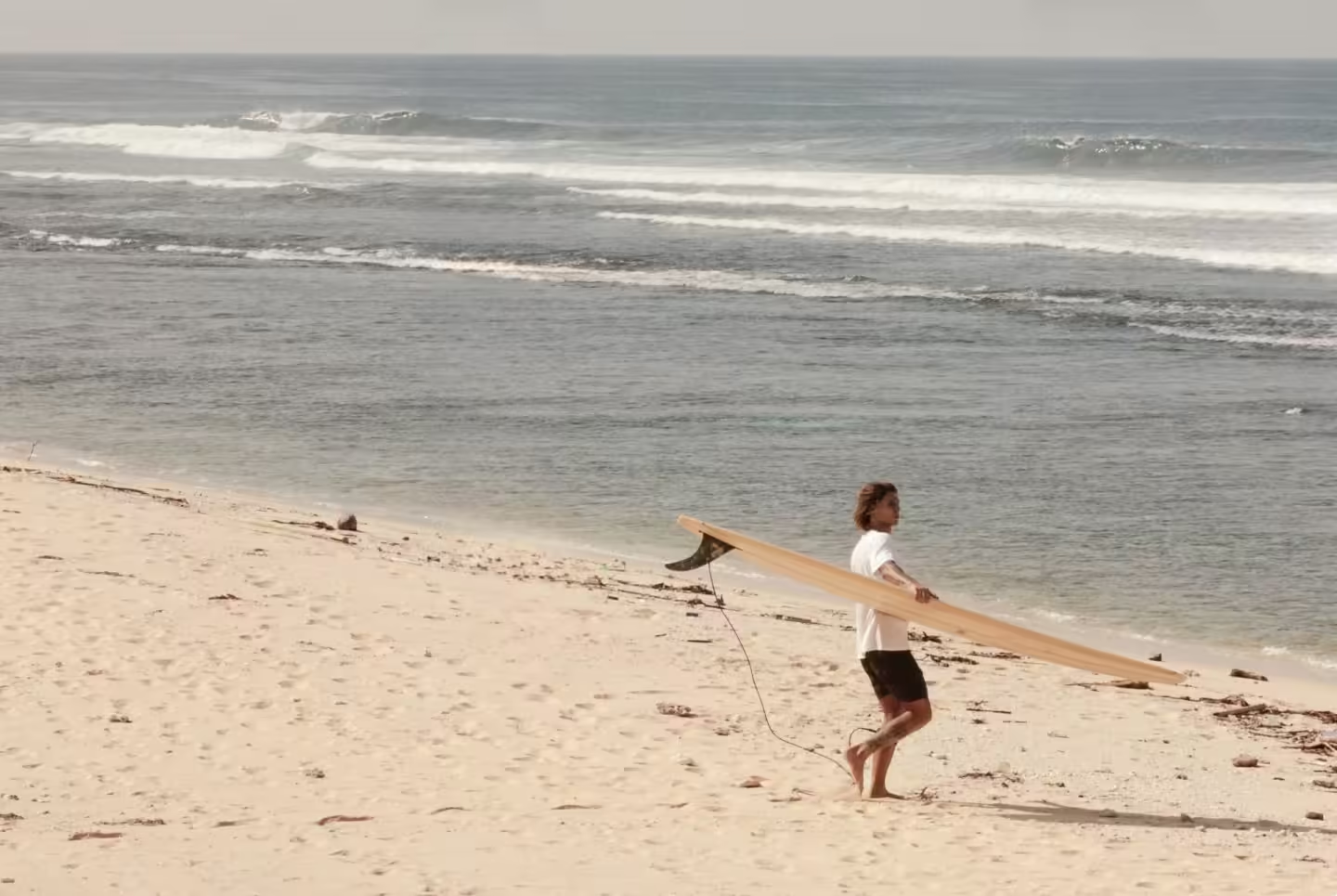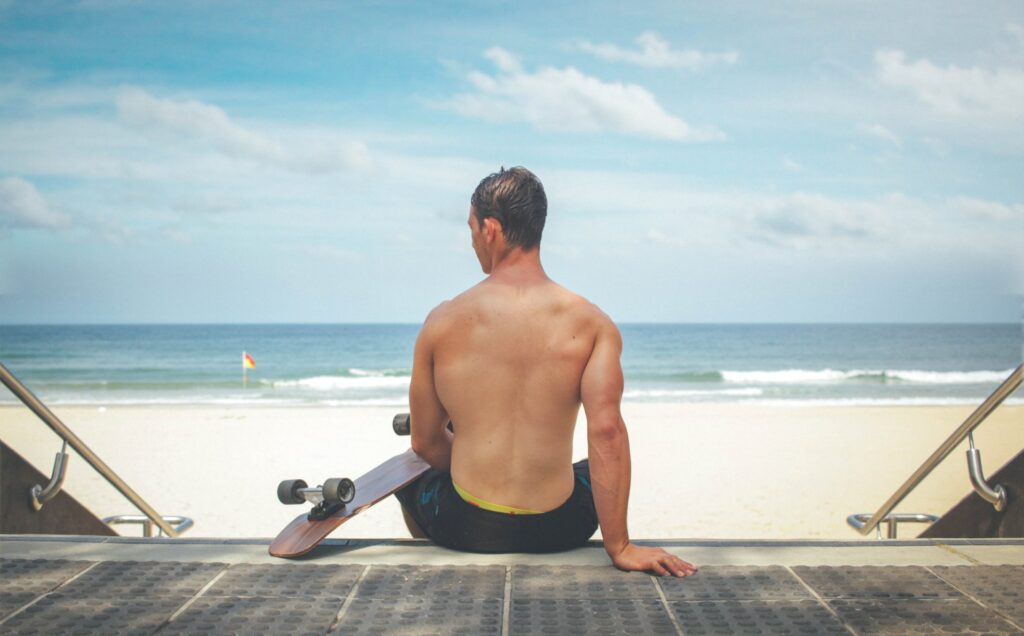Is Surfing Similar To Skateboarding?
Surfing and skateboarding are like long-lost siblings – they share a lot of the same DNA, but they each have their own unique quirks and personalities.
They’re both about riding waves, but one involves water and the other involves pavement. They both require balance, skill, and a willingness to wipe out spectacularly.
In this post, we will explore the similarities and differences between surfing and skateboarding by looking at their equipment, technique, and culture.
Get on your board (one of them) we’re riding!
Similarities Between Surfing and Skateboarding
Surfing and skateboarding are like two peas in a gnarly pod and have more in common than you might realize.
First off, they both require some sweet gear. You need a board for both sports, although the size and shape of the board vary.
Surfing boards tend to be longer and more buoyant, while skateboards are shorter and designed for tricks.
When it comes to technique, surfing and skateboarding both involve balancing on a board and shifting your weight to control your movements.
While in surfing you use your arms to paddle in order to eventually stand on your board, In skateboarding, you push with your foot to gain momentum and then use your feet and body to do tricks on the board while always standing.
Both sports require a lot of skill, balance, and spatial awareness, and both can be incredibly rewarding when you nail a new maneuver.
They also require a lot of practice, and both demand a high level of focus and mental toughness.
Whether you’re paddling out into big surf or dropping in on a steep ramp, you need to be able to stay calm under pressure and execute your moves with precision and confidence.
And let’s not forget about the culture. Surfers and skaters both have their own unique styles and lingo.
Whether you’re surfing or skating, the way you ride is just as important as the tricks you pull off. Both cultures value flow, grace, and a certain level of fluidity in your movements.
Even if it’s the way you carve up a wave or the way you execute a trick, style is an essential part of the experience.
However, surfing has a more laid-back, mellow vibe, while skateboarding can be more intense and aggressive.
Surfers often value the connection to nature that comes from riding waves, while skaters might focus more on getting technical with their tricks.
Knowing How to Skateboard Helps to Surf Better
Given the many similarities between skateboarding and surfing, it is reasonable to wonder if learning to skateboard could benefit your surfing abilities, and the short answer is yes.
Skateboarding encompasses a wide range of techniques and tricks that can have a positive impact on your surfing skills.
By mastering balance, footwork, and coordination on a skateboard, you can enhance your ability to ride waves and maintain control of the board.
There are 3 elements in which your surfing skills can be improved:
Balance
Skateboarding can be an excellent tool for improving your surf balance, as the two activities share the same stances.
If you’re unable to hit the waves due to conditions or time constraints, practicing your balance on a skateboard can help you gain a better understanding of your center of gravity.
By learning how to maintain your balance and avoid tipping over on a skateboard, you can build the muscle memory and spatial awareness needed to stay on the board while surfing.
In fact, skateboarding is perhaps the most effective way to simulate the balance required for surfing when you’re out of the water.
Flow
Flow is an essential component of both surfing and skateboarding, as it’s the key to generating speed and momentum.
Luckily, skateboarding is one of the few sports that allows you to practice flow in a controlled environment.
By learning how to synchronize the small, subtle movements of your upper and lower body, you can build the speed and momentum needed to ride waves and pull off impressive tricks.
Skateboarding also provides a great opportunity to explore how your body movements affect the movements of the board, which can help you better understand the mechanics of surfing.
When you’re out on the water, you often only have short bursts of time to grasp these concepts, or you may encounter imperfect waves that make it hard to get a handle on the flow.
Consistency
Finally, consistency is a key factor in achieving results in any space, and surfing is no exception.
In the water, there are countless external factors beyond your control. Each wave is unique, with varying heights, peaks, and amounts of water.
As a result, your speed, body positioning, and maneuvering will constantly change as you navigate the ever-shifting landscape of the ocean.
Plus, you’ll need to chase waves around the bay and endure long lulls between sets.
Skateboarding, on the other hand, offers a fixed environment — once a ramp or halfpipe is set up, it remains the same until it’s taken down.
This provides a valuable opportunity to try a trick or technique over and over again in the same setting, which is the quickest path to mastery.
When the conditions are consistent, you can focus on a single problem and work to improve your skills through repetition and practice.
Is Surfing Harder Than Skateboarding?
When it comes to comparing the difficulty of surfing and skateboarding, there’s no denying that surfing is the more challenging of the two.
Firstly, the ocean is an unpredictable and constantly changing environment — unlike the smooth and consistent surface of a skate park, surfers have to contend with waves that can vary greatly in size, shape, and power, making it much more difficult to maintain balance and control.
Secondly, the surface of a surfboard is slick and requires a great deal of skill to maneuver effectively.
In contrast, skateboarders have a rough grip tape surface that provides better traction and control.
Finally, surfing is an incredibly physically demanding sport. Not only do surfers need to paddle out to the lineup, but they also have to constantly paddle and exert themselves in order to catch and ride waves.
The most challenging thing here is that the water adds its resistance and there you also have a full body workout without asking.
Skateboarding, while also physically demanding, doesn’t require the same level of stamina and endurance as surfing.
Final Thoughts
So, after diving into the similarities and differences between surfing and skateboarding, what’s the verdict?
While there are certainly similarities between the two sports in terms of technique and culture, they are ultimately two distinct activities with their own unique challenges and rewards.
Whether you prefer carving the concrete waves of a skate park or riding the ocean swells on a surfboard, both sports offer a thrilling and rewarding experience.
So, grab your board of choice and get out there – after all, as the saying goes: Life is short, but the ride is long.



